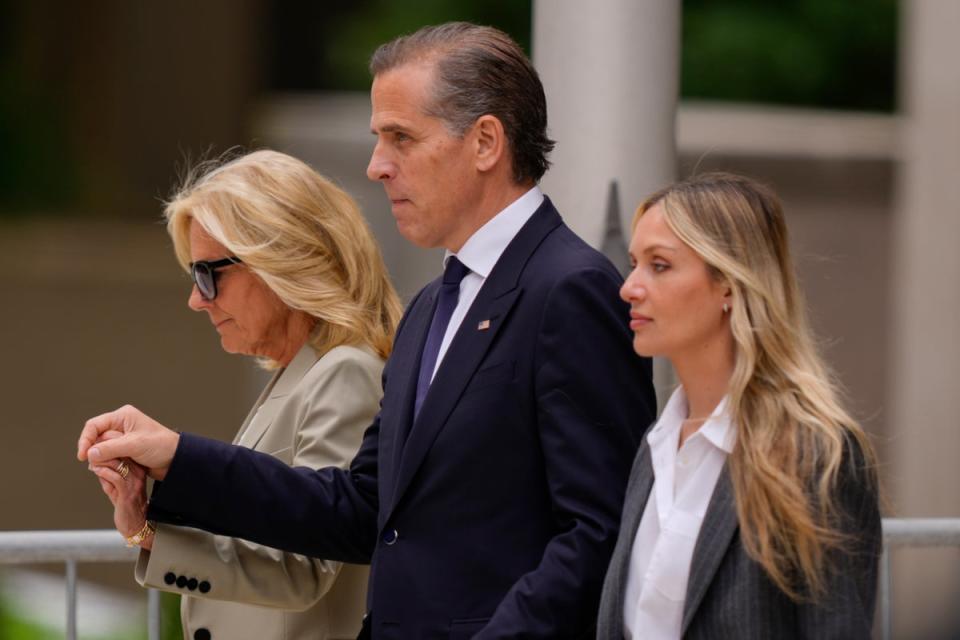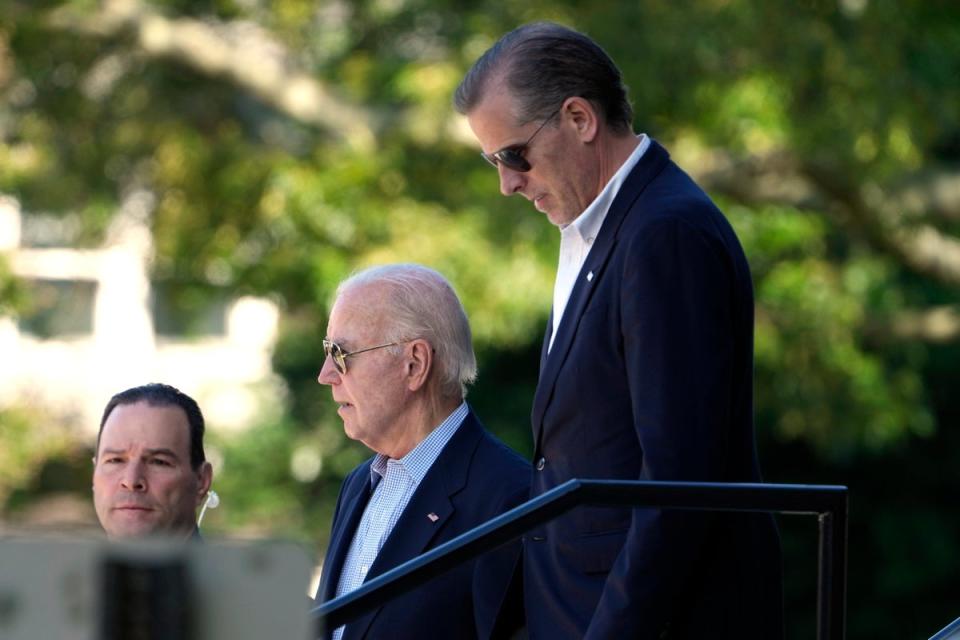Here’s how a Hunter Biden pardon could play out if Joe went back on his promise to accept the verdict
President Joe Biden ruled out pardoning his son, and the president has said he would respect the outcome of the jury trial, which marked the first-ever criminal proceedings of the son of a sitting US president.
But conservative commentators and social media critics have questioned whether the president will stand by his statements after his son’s conviction on three gun counts that could put him in prison for up to 25 years.
If Biden did pardon Hunter, he would be relying on longstanding executive authority that has been exercised dozens of times – but it would be an unprecedented and potentially politically devistating decision from a president who has repeatedly pledged that no one is above the law.
“I will accept the outcome of this case and will continue to respect the judicial process as Hunter considers an appeal,” he said on Tuesday after the verdict was announced. “Jill and I will always be there for Hunter and the rest of our family with our love and support. Nothing will ever change that.”
One week earlier, when asked whether he would respect the trial’s outcome, the president said “yes.” And asked if he had ruled out pardoning his son, the president also said “yes.”
In December, White House press secretary Karine Jean-Pierre insisted that “the president is not going to pardon his son.”
Under the Constitution, “The President … shall have Power to grant Reprieves and Pardons for Offenses against the United States, except in Cases of Impeachment.”
The president has authority to grant a pardon to anyone convicted in federal court or by a military court martial. A pardon would block any further punishment for the forgiven offense, and would effectively prevent any further consequences of a criminal conviction.

The president does not have authority to grant pardons on state-level convictions.
A pardon does not include an expungement of a criminal record, but it will restore most legal disabilities, including voting rights and the ability to sit on a jury and possess a firearm. It also does not signify innocence.
Generally, “a pardon is granted on the basis of the petitioner’s demonstrated good conduct for a substantial period of time after conviction and service of sentence,” and a petitioner typically is required to wait at least five years following their conviction or release from prison (or whichever is later) before submitting an application, according to the US Department of Justice.
The Justice Department also could also waive that five-year waiting period.
The guidelines are only recommendations. The president doesn’t need to wait for the Justice Department to act.

In considering a pardon, federal authorities typically consider the “conduct, character and reputation” of the petitioner, and whether they have shown a “demonstrated ability to lead a responsible and productive life for a significant period after conviction or release from confinement is strong evidence of rehabilitation and worthiness for pardon.”
That includes a background check by the FBI on their employment, family responsibilities, reputation, community service and charitable giving.
A pardon application is also considered against the seriousness of the offense, and whether the petitioner has accepted “responsibility, remorse and atonement.”
“A petitioner should be genuinely desirous of forgiveness rather than vindication,” according to the Justice Department. “While the absence of expressions of remorse should not preclude favorable consideration, a petitioner’s attempt to minimize or rationalize culpability does not advance the case for pardon.”
Anyone seeking a pardon after stating they are innocence or the victim of a miscarriage of justice will “bear a formidable burden of persuasion.”
Officials also would review the “need” for a pardon against potential threats to the petitioner’s livelihood, including whether a felony conviction interfered with occupational licensing for their employment.
But “the absence of a specific need should not be held against an otherwise deserving applicant, who may understandably be motivated solely by a strong personal desire for a sign of forgiveness,” according to the Justice Department.
Officials also would take into consideration any recommendations and other comments from US attorneys and the sentencing judge.
“As the President, I don’t and won’t comment on pending federal cases, but as a Dad, I have boundless love for my son, confidence in him, and respect for his strength,” the president said in a statement at the start of the trial in federal court in Wilmington. “Our family has been through a lot together, and Jill and I are going to continue to be there for Hunter and our family with our love and support.”

 Yahoo News
Yahoo News 
